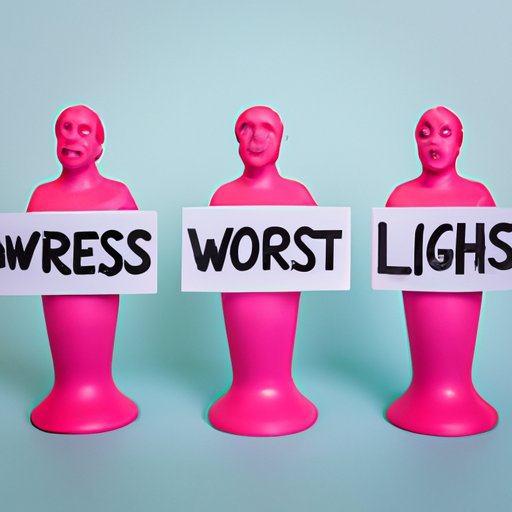
Is it Harder for Women to Lose Weight?
Weight loss can be a challenging journey for anyone, regardless of gender. However, many individuals believe that women have a harder time shedding pounds than men. While there may be some truth to this statement, it’s important to understand the science behind gender differences in weight loss and the unique challenges that women face. By exploring these topics, women can learn how to overcome biological differences, break down barriers to weight loss, and redefine traditional weight loss methods to find success and confidence in their bodies.
Exploring the Science Behind Gender Differences in Weight Loss: Are Women Really at a Disadvantage?
To understand why women may struggle more with weight loss, it’s important to consider how men and women’s bodies differ. Men typically carry more muscle mass and have a higher metabolic rate, making it easier for them to burn calories and lose weight. Additionally, men tend to be more physically active and have higher levels of testosterone, which can contribute to increased muscle growth and weight loss.
In contrast, women tend to carry more fat mass, have lower resting metabolic rates, and experience hormonal changes that can impact weight loss. Estrogen, for example, can contribute to increased fat storage, particularly around the hips and thighs. Additionally, women may experience menstrual cycle-related weight fluctuations and changes in appetite, making it more difficult to maintain a consistent weight loss regimen.
Studies have supported the idea that women have a harder time losing weight than men. One study published in the International Journal of Obesity found that women lost less weight overall and experienced a slower metabolism after weight loss than men. Another study published in the Journal of Obesity found that women experienced more negative emotions related to diet and exercise and were more likely to engage in emotional eating than men.
Breaking down the Barriers to Female Weight Loss: Tips and Tricks for Overcoming Biological Differences
While women may face unique challenges with weight loss, there are strategies that can help overcome these barriers. First and foremost, incorporating strength training into a workout routine can help increase muscle mass and boost metabolism, leading to more effective weight loss. Additionally, tracking progress through record-keeping or wearable devices can provide motivation and help women identify areas for improvement.
Seeking help from professionals, such as registered dietitians and personal trainers, can also be beneficial for women looking to lose weight. These individuals can provide personalized guidance and support, taking into account factors specific to women’s bodies and lifestyles.
The Unique Challenges Women Face When Trying to Shed Pounds: A Comprehensive Guide
There are other obstacles beyond biological differences that women must navigate when trying to lose weight. Hormonal changes, for example, can have a significant impact on weight loss. Polycystic ovary syndrome (PCOS), a hormonal disorder affecting women of reproductive age, can cause weight gain and make it difficult to lose weight. Similarly, menopause can cause changes in body composition and metabolism that impact weight loss.
Social and cultural pressures can also make it challenging for women to lose weight. The weight loss industry often perpetuates unrealistic beauty standards and promotes fad diets that are often unsustainable and unhealthy. Many women feel pressure to conform to these ideals, leading to cycles of yo-yo dieting and negative body image. Additionally, women may struggle to find time for exercise and healthy eating amidst other responsibilities, such as work, family, and caregiving.
Despite these challenges, there are strategies that women can employ to overcome them. Seeking support from friends and family can provide motivation and accountability. Prioritizing self-care and setting realistic goals can also help women stay on track and maintain a positive outlook.
From Hormonal Imbalances to Social Pressures: Why Losing Weight is More Difficult for Women
Overall, there are a variety of factors that contribute to why weight loss can be more challenging for women. Hormonal imbalances, social and cultural pressures, and competing responsibilities can create barriers that hinder progress. However, by understanding these challenges and employing personalized strategies for overcoming them, women can succeed in achieving their weight loss goals.
Redefining Weight Loss for Women: How to Embrace Your Body and Achieve Your Goals
While traditional weight loss methods may work for some women, others may find success by redefining what weight loss means to them. Rather than focusing solely on the number on the scale, prioritizing overall health and wellness can lead to a more sustainable and fulfilling journey. This can include setting goals for strength, flexibility, or endurance, incorporating stress-reducing activities such as yoga or meditation, or embracing intuitive eating practices.
In addition to physical strategies, it’s important for women to embrace self-love and body positivity. This can involve challenging negative self-talk, honoring one’s unique strengths and abilities, and surrounding oneself with positive and supportive individuals. By redefining weight loss in a way that honors one’s individuality and wellbeing, women can find success and confidence in their bodies.
Conclusion
While losing weight may be a challenging journey for many individuals, it can be even more difficult for women due to biological, social, and cultural factors. However, by employing strategies tailored specifically to women’s needs and challenging traditional weight loss methods, women can overcome these obstacles and achieve their goals. By prioritizing self-love and embracing a holistic approach to wellness, women can redefine what weight loss means and find success and happiness in their bodies.
Call to action: Regardless of your gender, it’s important to prioritize your health and well-being. Consider seeking support from professionals or loved ones, incorporating strength training into your workout routine, setting realistic goals, and embracing self-love and body positivity. With dedication and perseverance, you can achieve your weight loss goals and find confidence and happiness in your body.





